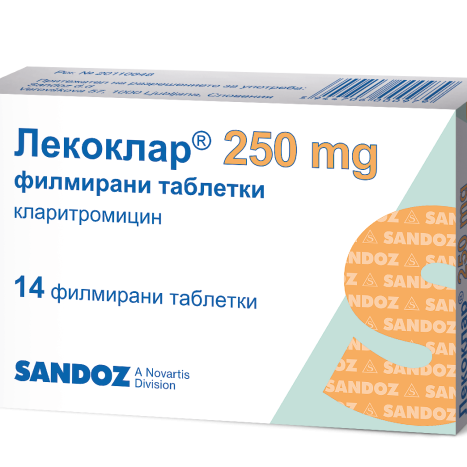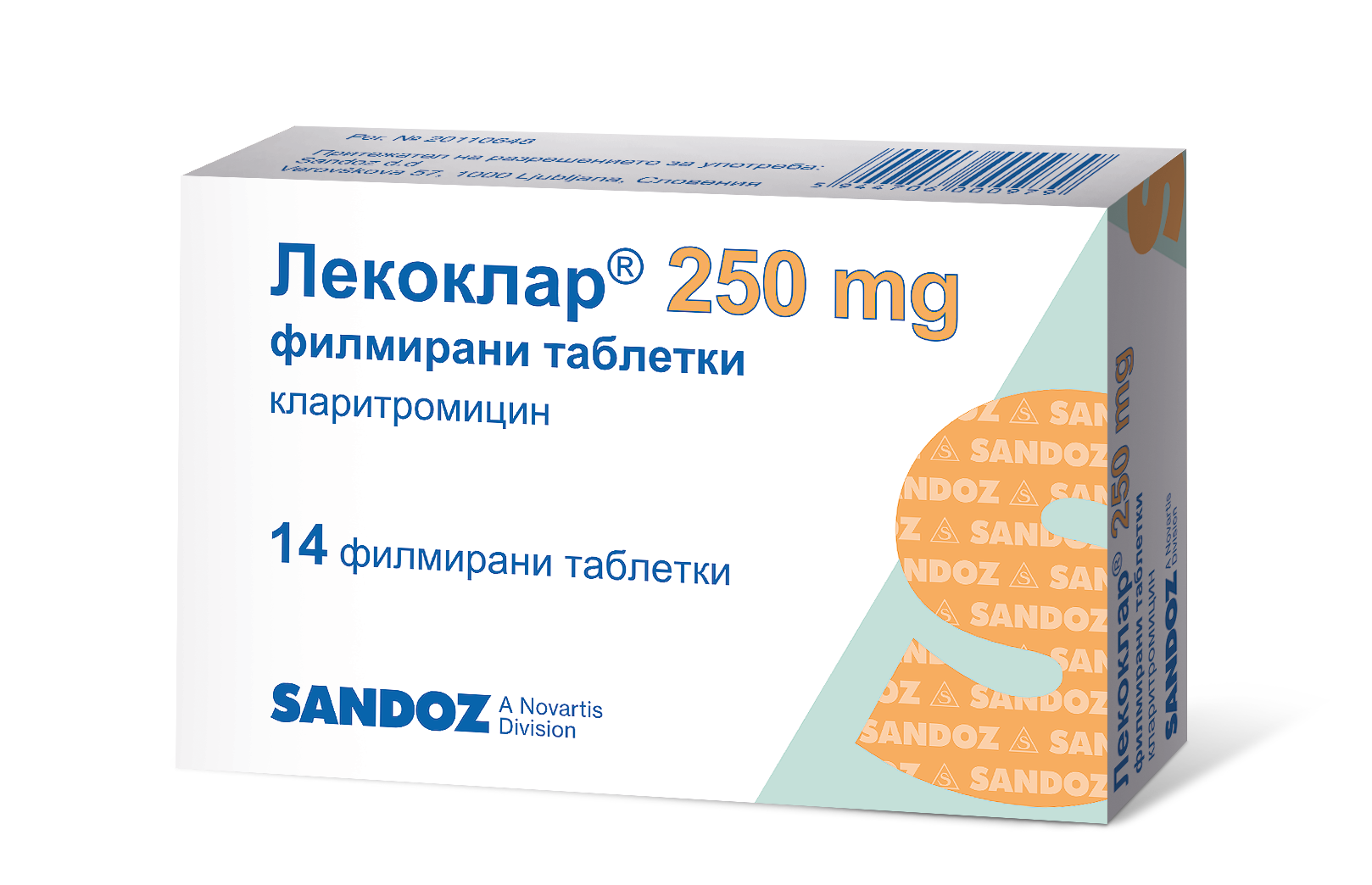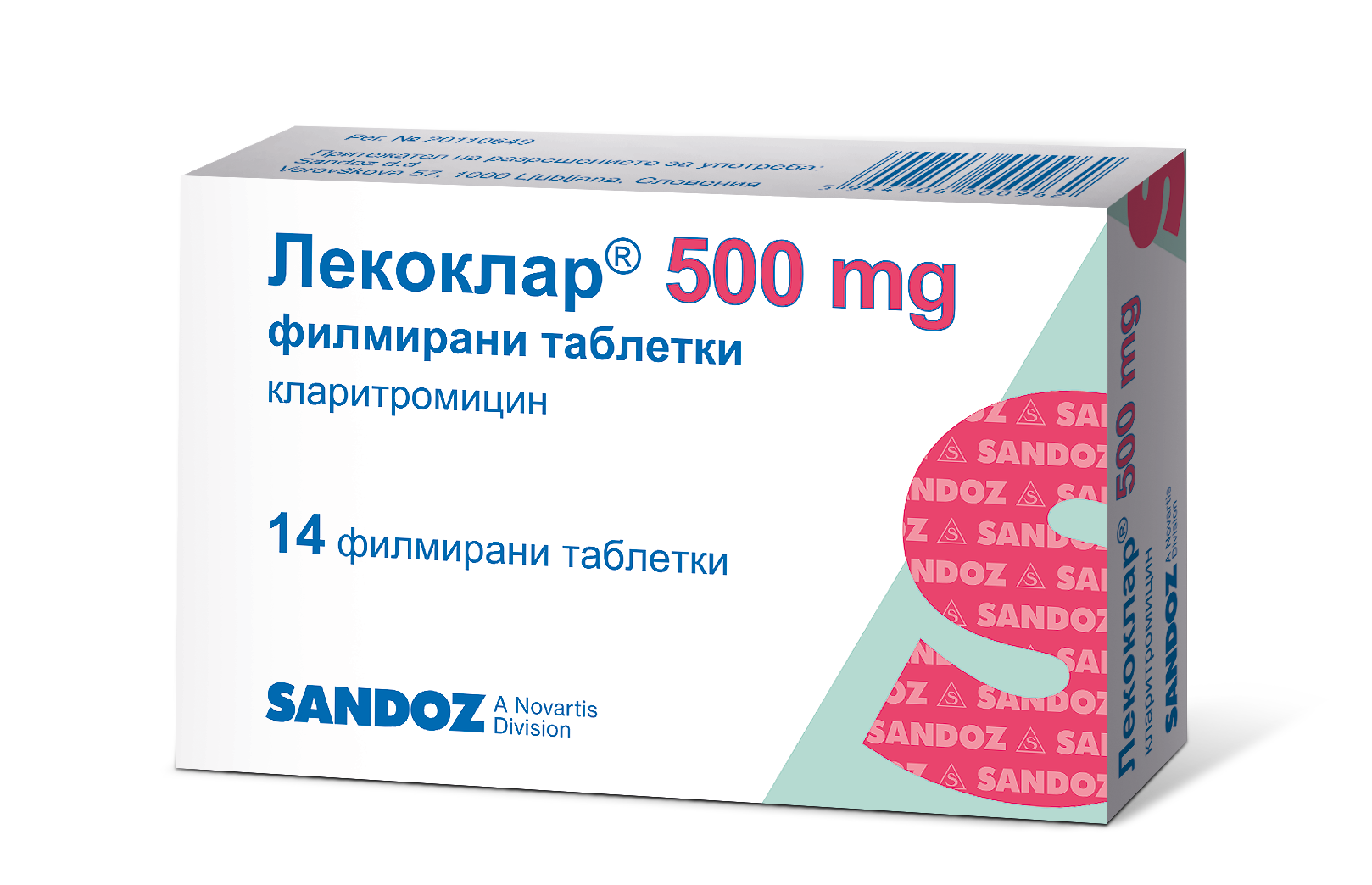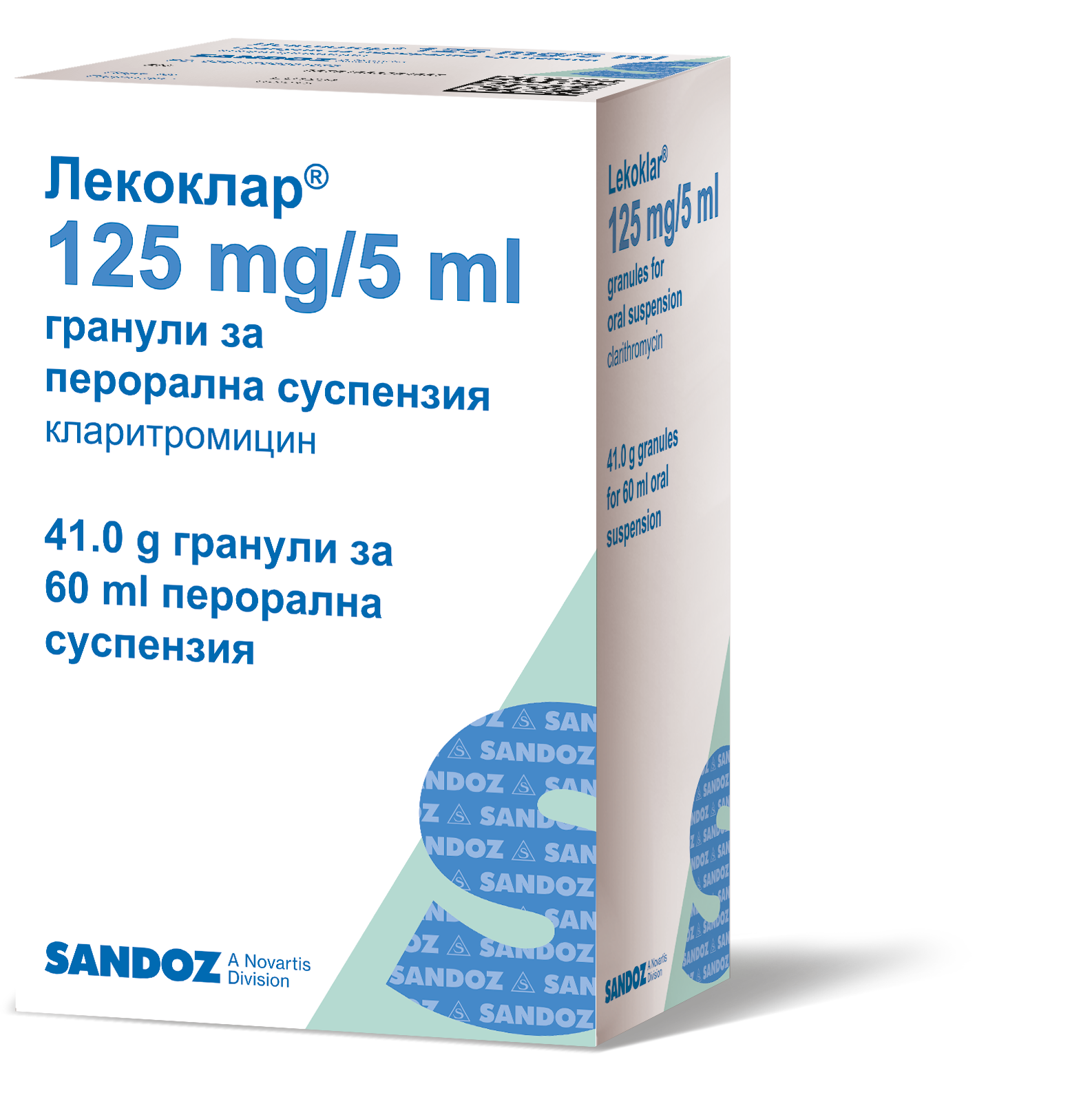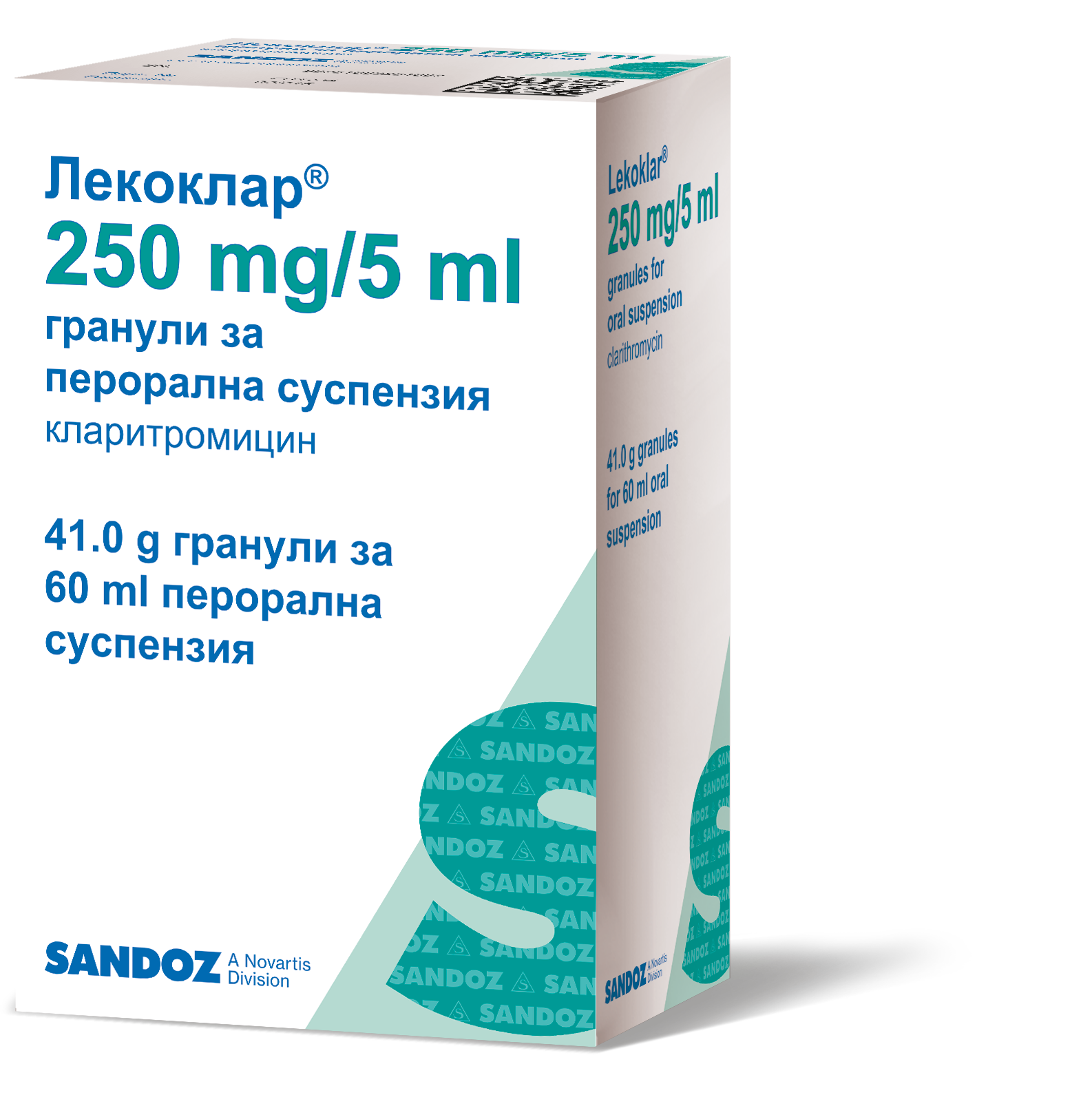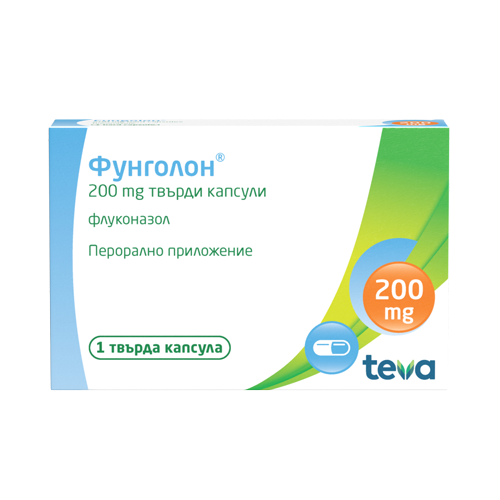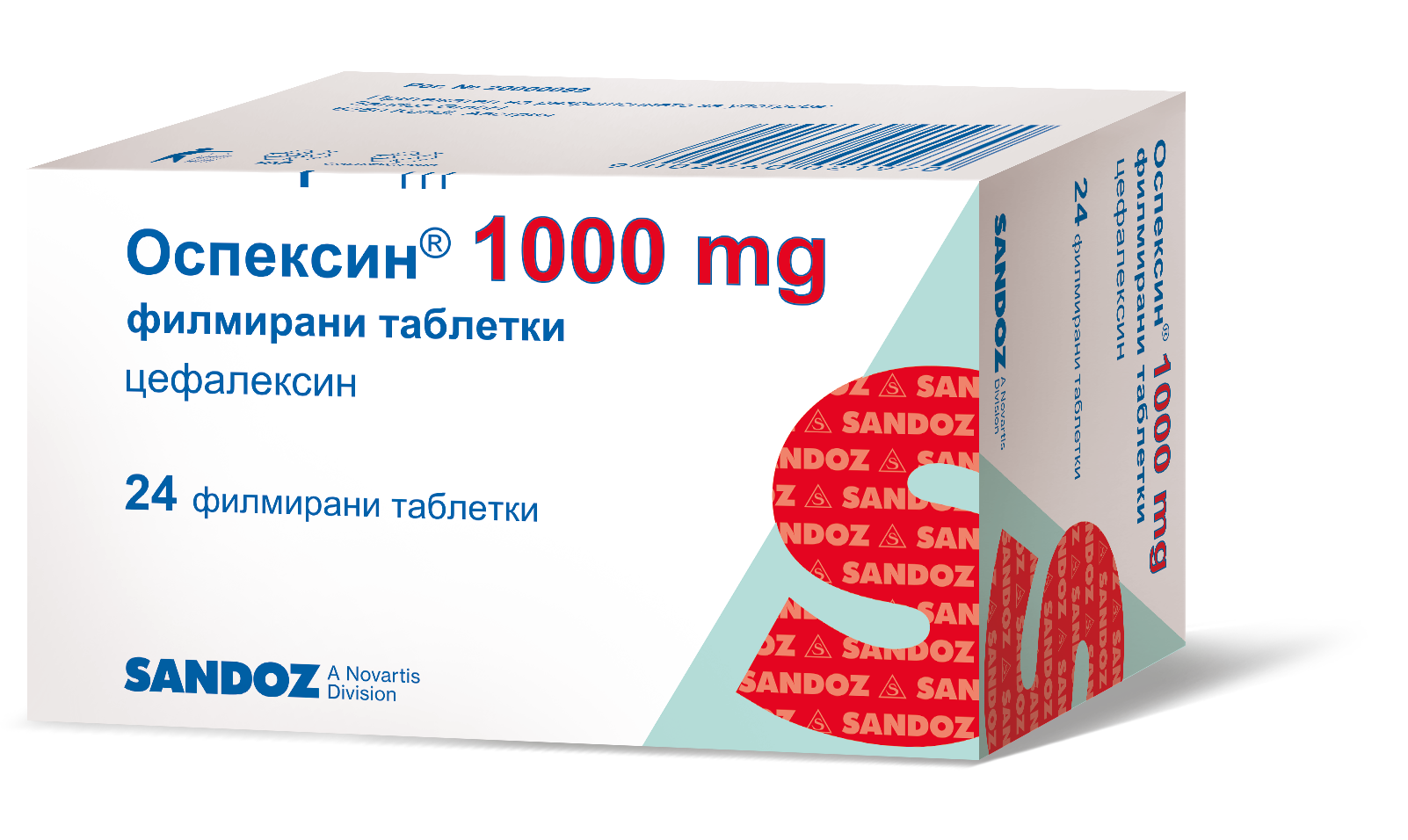LEKOKLAR 250mg x 14 tabl
Leaflet: patient information
Lecoclar 250 mg film-coated tablets
Lekoklar 250 mg film-coated tablets
Lecoclar 500 mg film-coated tablets
Lekoklar 500 mg film-coated tablets
clarithromycin
Read all of this leaflet carefully before you start taking this medicine because it contains important information for you.
- Keep this leaflet. You may need to read it again,
- If you have any further questions, ask your doctor or pharmacist.
- This medicine has been prescribed for you personally. Don't leave it to other people. It can harm them, regardless of the fact that the signs of their illness are the same as yours.
- If you get any side effects, tell your doctor or pharmacist. This also includes any possible side effects not described in this leaflet. See point 4.
What this leaflet contains
1. What Lecoclar is and what it is used for
2. What you need to know before you take Lecoclar
3. How to take Lecoclar
4. Possible side effects
5. How to store Lecoclar
6. Contents of the package and additional information
1. What Lecoclar is and what it is used for
Clarithromycin is an antibiotic that belongs to the group of macrolide antibiotics. They stop the growth of certain bacteria.
Lecoclar is used in adults and adolescents (12 years and over) to treat infections caused by bacteria sensitive to clarithromycin, for example:
- throat and sinus infections
- chest infections, such as bronchitis and pneumonia
- skin and soft tissue infections
- stomach ulcers caused by the bacterium Helicobacter pylori .
2. What you need to know before you take Lecoclar
Do not take Lecoclar
- if you are allergic to clarithromycin, other macrolide antibiotics or any of the other ingredients of this medicine listed in section 6.
- if in the past you have or someone in your family has had certain heart rhythm disorders (ventricular arrhythmia, including torsades de pointes ) or abnormal electrocardiogram (ECG electrical recording of the heart) known as "long QT interval",
- if you suffer from severe liver failure and kidney problems at the same time,
- if you have an abnormally low level of potassium in your blood (hypokalaemia),
- if you accept
- ticagrelor (to prevent blood clots)
- ranolazine (to treat angina)
- ergotamine , dihydroergotamine (medicines to treat migraine)
- oral midazolam (for anxiety or to help sleep)
- cisapride and domperidone (stomach medicine),
- pimozide (antipsychotic),
- terfenadine, astemizole (rhinitis, anti-allergic drugs)
- lovastatin , simvastatin (medicines to lower cholesterol)
- colchicine (to treat gout)
- other medicines known to cause serious heart rhythm disturbances
Warnings and precautions
Talk to your doctor or pharmacist before taking clarithromycin
- if you are pregnant , think you may be pregnant or are planning to become pregnant,
- if you have reduced liver or kidney function ,
- if you have diabetes ,
- if you develop severe or prolonged diarrhea (pseudomembranous colitis) during or after taking Lecoclar, consult your doctor immediately. Inflammation of the colon (pseudomembranous colitis) has been reported with the use of almost all antibacterial drugs, including clarithromycin.
- if you have or have had heart problems
- if you have abnormally low levels of magnesium in your blood (hypomagnesaemia), ask your doctor before taking this medicine.
Other medicines and Lecoclar
Please tell your doctor or pharmacist if you are taking, have recently taken or might take any other medicines, including those obtained without a prescription.
Lecoclar should not be taken with ergo alkaloids, astemizole, terfenadine, cisapride, domperidone, pimozide, ticagrelor, ranolazine, colchicine, some medicines to treat high cholesterol and medicines known to cause serious heart rhythm disturbances (see " Do not take Lecoclar").
Some other medicines can affect the effect of clarithromycin and vice versa. Such drugs are:
Lecoclar can enhance the effect of the following drugs:
- ibrutinib (chronic lymphoid leukemia)
- alprazolam, triazolam, intravenous or oromucosal midazolam (for anxiety or to help sleep)
- digoxin, quinidine, disopyramide, verapamil, amlodipine, diltiazem (heart medicines)
- theophylline (anti-asthmatic medicine)
- warfarin (anti-clotting medicine)
- other statins (except the contraindicated lovastatin and simvastatin), such as atorvastatin, rosuvastatin (cholesterol-lowering agents)
- cyclosporine, sirolimus, tacrolimus (medicines that suppress the immune system)
- carbamazepine, phenytoin, valproate (medicines to treat epilepsy)
- cilostazol (used to improve blood circulation in the legs)
- insulin and other medicines to treat diabetes (such as nateglinide, pioglitazone, rosiglitazone or repaglinide)
- methylprednisolone (cortisone to treat inflammation)
- omeprazole (stomach medicine)
- sildenafil, tadalafil, vardenafil (medicines to treat erectile dysfunction)
- tolterodine (to treat overactive bladder syndrome)
- vinblastine (medicine to treat cancer)
- medicines with a risk of affecting hearing, especially aminoglycosides, such as gentamicin or neomycin (a group of antibiotics)
Both the effect of Lecoclar and the effect of the following drugs can be enhanced when they are taken together:
- atazanavir, saquinavir (medicines to treat HIV)
- itraconazole (medicine to treat fungal infections)
If your doctor has specifically recommended that you take Lecoclar and any of the above medicines at the same time, your doctor may need to monitor you more closely.
The following drugs can weaken the effect of Lecoclar:
- rifampicin, rifabutin, rifapentine (antibiotics)
- efavirenz, etravirine, nevirapine (medicines to treat HIV)
- phenytoin, carbamazepine, phenobarbital (antiepileptic drugs)
- St. John's wort (herbal product for treating depression)
Please note:
- Ritonavir (an antiviral medicine) and fluconazole (a medicine to treat fungal infections) can increase the effect of Lecoclar.
- Lecoclar can weaken the effect of zidovudine (a medicine to treat HIV). To avoid this, you should leave an interval of 4 hours between taking these medicines.
- The use of Lecoclar simultaneously with digoxin , quinidine or disopyramide, or verapamil (medicines for the heart), or other macrolide antibiotics can cause cardiac arrhythmia.
- The use of Lecoclar at the same time as disopyramide can lead to a decrease in blood sugar levels ( hypoglycemia ).
Pregnancy and breastfeeding
If you are pregnant or breast-feeding, think you may be pregnant or are planning to become pregnant, ask your doctor or pharmacist for advice before using this medicine.
Driving and using machines
In general, Lecoclar has no effect on the ability to drive or use machines, but may cause side effects such as dizziness, confusion and disorientation. If you feel such an effect, you should not drive, operate machinery or engage in activities where you may endanger yourself or others. Patients' ability to drive and operate machines may be affected by visual disturbances and blurred vision.
Lecoclar contains sodium
This medicine contains less than 1 mmol sodium (23 mg) per dose, i.e. it can be said to be practically sodium-free.
3. How to take Lecoclar
The doctor will prescribe an individual dosage suitable for you. Always take this medicine exactly as your doctor has told you. If you are not sure about something, ask your doctor.
Dosage
Adults and adolescents (12 years and over)
The recommended dose is 1 Lecoclar 250 mg film-coated tablet twice a day.
The dose can be increased to 2 film-coated tablets of Lecoclar 250 mg twice a day or 1 film-coated tablet of Lecoclar 500 mg twice a day.
Stomach ulcers caused by the bacterium Helicobacter pylori :
2 film-coated tablets of Lecoclar 250 mg twice daily or 1 film-coated tablet of Lecoclar 500 mg twice daily, in combination with appropriate antibiotics and drugs used to treat excessive gastric acid secretion.
Children (under 12):
Use in children under 12 years of age is not recommended.
Other dosage forms are available for these patients, e.g. suspensions.
Severe renal failure
Your doctor will reduce the dose.
Method of use
For oral use.
Drink a glass of water with the medicine.
The medicine can be taken with or without food.
Duration of treatment
- In general, treatment lasts 6-14 days. Treatment should be continued for at least 2 days after symptoms disappear.
- In case of streptococcal infection, the minimum duration of treatment should be 10 days.
- Treatment of gastric ulcer caused by Helicobacter pylori should last 7 days.
If you have taken more than the required dose of Lecoclar
If you have taken more than the required dose of Lecoclar, contact your doctor or hospital as soon as possible. Overdose symptoms may be gastrointestinal.
If you forget to take Lecoclar
If you forget to take Lecoclar, continue treatment following the usual dosage recommended by your doctor. Do not take a double dose to make up for a missed dose.
If you have stopped taking Lecoclar
It is important to take your medicine as directed by your doctor. Do not suddenly stop taking Lecoclar without first talking to your doctor. Otherwise, the symptoms may reappear.
If you have any further questions related to the use of this medicine, please ask your doctor or pharmacist.
4. Possible side effects
Like all medicines, this medicine can cause side effects, although not everybody gets them.
Serious side effects:
Contact your doctor or nearest hospital emergency department immediately if you experience any of the following symptoms of a severe allergic reaction:
- sudden difficulty in breathing, speaking and swallowing, swelling of the lips, face and neck
- severe dizziness or fainting
- severe or itchy skin rash, especially if accompanied by blisters and inflammation of the eyes, mouth or genitals
- severe and prolonged diarrhea during or after treatment, sometimes with bloody-mucous stools and/or cramp-like abdominal pain. This may be a sign of severe intestinal inflammation. Your doctor may stop treatment. Do not take medications that slow down bowel movements.
- liver problems, signs of which may include:
- Lack of appetite,
- yellowing of the skin or the whites of the eyes (jaundice)
- unusually dark colored urine, light colored stools
- itchy skin
- stomach ache.
- palpitations or an irregular heartbeat
- inflammation of the pancreas that causes severe pain in the abdomen and back
- a red, scaly rash with subcutaneous swollen areas and blisters (exanthematous pustulosis).
Other side effects:
Common (may affect up to 1 in 10 people):
- insomnia
- headache
- changes in taste sensations or a bad taste in the mouth (eg metallic or bitter taste)
- stomach pain, nausea, vomiting, diarrhea, indigestion
- abnormalities in the results of liver tests
- rash
- sweating
- dilation of blood vessels.
Uncommon (may affect up to 1 in 100 people):
- fungal infections (candidiasis), for example in the mouth
- vaginal infections
- decrease in the number of white blood cells (leukopenia, neutropenia)
- increase in the number of certain white blood cells (eosinophilia)
- allergic reactions
- anorexia, lack of appetite
- anxiety, dizziness, drowsiness, tremors
- feeling dizzy
- hearing loss, ringing in the ears (tinnitus)
- changes in heart activity detected by ECG, called "QT prolongation"
- feeling of the heartbeat
- inflammation of the stomach, mouth and tongue
- gas, constipation, belching, swollen stomach/abdomen
- dry mouth
- stopping the flow of bile
- inflammation of the liver
- increase in liver enzymes in the blood
- itching, hives
- physical ailment
- general malaise
- weakness
- chest pain
- chills
- fatigue
- loss of consciousness
- bullous dermatitis (see 'Serious side effects' above).
Not known (frequency cannot be estimated from the available data):
- inflammation of the bowels, mild to severe (see “Serious side effects” above)
- certain bacterial infections of the skin and underlying tissues (erysipelas)
- a serious decrease in the number of certain white blood cells (agranulocytosis)
- reduced number of platelets in the blood: signs of this may be abnormal clotting and bleeding
- severe allergic reaction (anaphylactic reaction, see “Serious side effects” above)
- psychosis, sense of loss of identity
- feeling not yourself, confusion
- depression, unusual dreams, disorientation, hallucinations, mania
- seizures
- changes in the sense of smell, loss of the sense of smell and taste
- numbness or tingling
- deafness
- heart rhythm disorders, incl. life-threatening conditions (ventricular arrhythmia, torsades de pointes , see "Serious side effects" above)
- prolongation of blood clotting time
- acute inflammation of the pancreas (see “Serious side effects” above)
- change in the color of the teeth and tongue
- severe liver failure, incl. life-threatening conditions (see “Serious side effects” above)
- yellowing of the skin or the whites of the eyes (jaundice)
- severe skin diseases accompanied by discomfort, redness, peeling or sweating (Stevens-Johnson syndrome, toxic epidermal necrolysis, DRESS syndrome; see “Serious side effects” above).
- acne
- muscle pain or weakness
- kidney inflammation, kidney failure
- unusual color of urine
- visual field problems (blurred vision)
- impaired vision.
Reporting adverse reactions
If you get any side effects, tell your doctor, pharmacist or nurse. This includes all possible side effects not described in this leaflet. You can also report adverse reactions directly through the national reporting system to the Executive Medicines Agency, 8 Damyan Gruev Street, 1303 Sofia, phone: +35928903417, website: www.bda.bg. By reporting side effects, you can contribute to getting more information about the safety of this medicine.
5. How to store Lecoclar
Keep out of the reach of children.
Do not use this medicine after the expiry date which is stated on the pack and blister after EXP. The expiration date corresponds to the last day of the specified month.
This medicine does not require special temperature storage conditions.
Store in the original carton in order to protect from light.
Do not dispose of medicines down the drain or in the household waste container. Ask your pharmacist how to dispose of medicines you no longer use. These measures will help protect the environment.
6. Contents of the package and additional information
What Lecoclar contains
The active substance is clarithromycin .
Each film-coated tablet contains 250 mg of clarithromycin.
Each film-coated tablet contains 500 mg of clarithromycin.
The other ingredients are:
Tablet core: croscarmellose sodium (E 468), microcrystalline cellulose (E 460), povidone, magnesium stearate (E 572), silicon dioxide colloidal anhydrous (E 551), talc (E 553b).
Film coating: hypromellose (E 464), propylene glycol (E 1520), titanium dioxide (E171), hydroxypropylcellulose (E 463), sorbitan monooleate (E 494), quinoline yellow (E104), vanillin.
What Lecoclar looks like and contents of the pack
250 mg film-coated tablets: dark yellow, film-coated tablet, capsule-shaped (15.6 x 7.9 mm).
500 mg film-coated tablets: light yellow, film-coated tablet, oval shape (18.8 x 8.8 mm).
PVC/PVDC aluminum blister
Types of packaging:
250 mg film-coated tablets : 7, 10, 12, 14 or 21 film-coated tablets.
500 mg film-coated tablets: 7, 10, 14 or 21 film-coated tablets.
Not all types of packaging can be put on sale.
License holder
Sandoz dd
Verovškova 57, 1000 Ljubljana, Slovenia
Manufacturer
Lek Pharmaceuticals dd
Administrative address:
Verovškova 57, 1526 Ljubljana, Slovenia
Production address:
Verovškova 57, 1526 Ljubljana, Slovenia
and
Production address:
Trimlini 2D, 9220 Lendava, Slovenia
LEK SA
Administrative address:
street Podlipie 16, 95-010 Stryków, Poland
Production address:
street Domaniewska 50 C, 02-672 Warszawa, Poland
Salutas Pharma GmbH
Otto-von-Guericke-Allee 1, 39179 Barleben, Germany
SC Sandoz, SRL
Str. Livezeni nr. 7A, RO-540472 Targu-Mures, Romania
This medicinal product is authorized for use in the EEA member states under the following names :
The Netherlands Clarithromycine Sandoz 250 mg, filmomhulde tabletten
Clarithromycin Sandoz 500 mg, filmomhulde tabletten
Belgium Clarithrosandoz 250 mg filmomhulde tabletten
Clarithrosandoz 500 mg filmomhulde tabletten
Greece Clarithromycin/Sandoz, 250 mg, coated with thin film
Clarithromycin/Sandoz, 500 mg, thin film coated
Spain Claritromicina Sandoz 250 mg comprimidos recubiertos con película EFG
Claritromicina Sandoz 500 mg comprimidos recubiertos con película EFG
Lithuania Lekoklar 500 mg pėvele dengtos tabletės
Poland Lekoklar mite
Lekoklar forte
Romania Lekoklar 250 mg comprimate filmate
Lekoklar 500 mg comprimate filmate
Slovakia LEKOKLAR 250 mg filmom obalené tablety
LEKOKLAR 500 mg film coated tablets
Date of last revision of leaflet
MM/YYYY


